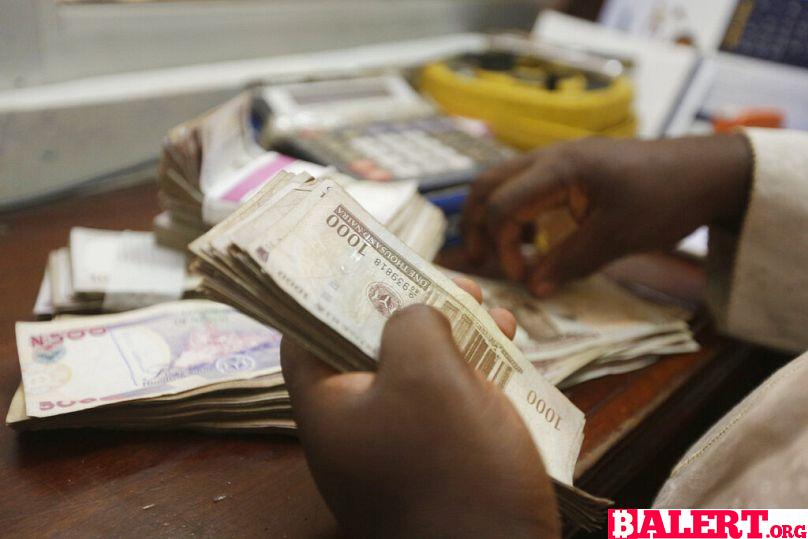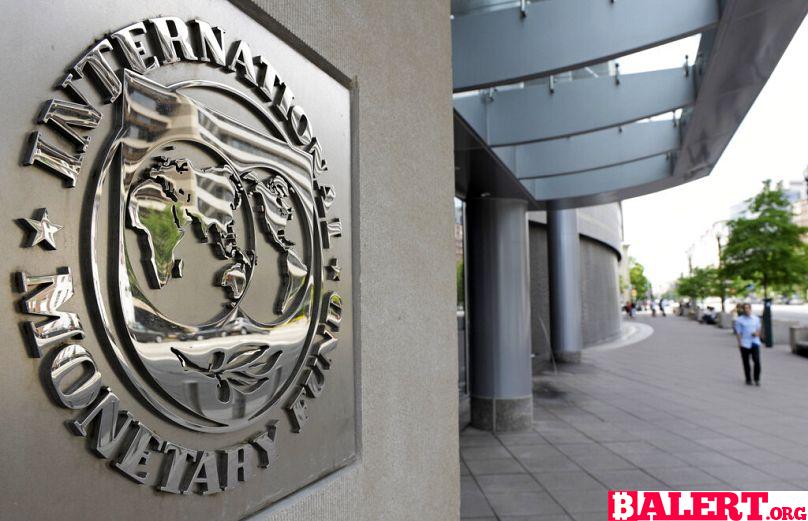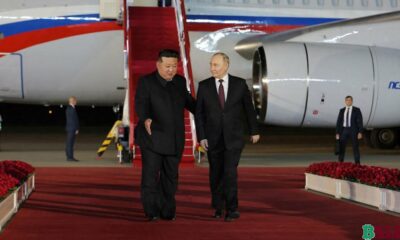World
Revitalizing Bretton Woods Institutions for Climate Finance
Explore innovative strategies to revitalize Bretton Woods Institutions for effective climate finance. Discover how these changes can enhance global cooperation and support sustainable development in the face of climate challenges.

Revitalizing Global Finance: The Role of Bretton Woods Institutions

Established 80 years ago in July 1944, the Bretton Woods institutions were born during a time when many developing nations had yet to achieve independence. Despite their historical shortcomings, these two institutions remain vital avenues through which European nations can mobilize climate and development finance for low- and middle-income countries, thereby advancing Europe’s own climate objectives.
The World Bank, often simply referred to as ‘The Bank,’ holds a unique position within the international financial system. Its core mission—leveraging shareholder capital, borrowing on international capital markets, and subsequently lending at low rates to developing nations—is both effective and unparalleled. Since its inception in 1944, the World Bank’s International Bank for Reconstruction and Development (IBRD) has garnered $19 billion (€17.7 billion) from its shareholders, transforming this amount into over $800 billion (€744.9 billion) in loans. While regional development banks, such as the African Development Bank and the European Investment Bank, contribute significantly, none match the lending capacity of the World Bank.
Throughout the 1990s and 2000s, the primary critique of the Bank revolved around its imposition of detrimental policy conditions on borrowing countries. However, the dialogue has evolved; now, activists and leaders from the global South are demanding more of what the Bank has to offer, perceiving it as too limited and slow to adequately address the contemporary challenges posed by climate change and geopolitical fragmentation.
A Case for a Mutually Beneficial Partnership
This demand became evident during an African Heads of State meeting in April, where leaders advocated for an unprecedented replenishment of $120 billion (€111.7 billion) for the World Bank’s concessional lending arm, the International Development Association (IDA). IDA is crucial for nations that have minimal access to capital markets, leveraging each dollar donated to generate $3.5, while supporting locally owned systems and providing the flexibility necessary to respond to crises. Despite these evident advantages, Africa continues to struggle with a lack of access to affordable capital. Conversely, Europe, facing a rapidly aging population, possesses financial resources that Africa desperately needs.
The pressing climate and development finance requirements of developing countries (excluding China) are projected to reach approximately $1 trillion (€931.1 billion) annually by 2030. This scenario creates a significant opportunity for a mutually beneficial partnership between Europe and Africa. Africa is rich in natural resources, including solar, wind, and hydroelectric potential, as well as vital minerals and forests. Additionally, the continent boasts a burgeoning workforce, represented by the world’s youngest population. Yet, despite these advantages, Africa’s access to affordable capital remains limited.

It’s Also About a Rules-Based Order
Failure to mobilize this essential finance could lead Africa’s expanding population to adopt a development trajectory heavily reliant on fossil fuels, ultimately locking in detrimental emissions. Such a scenario would jeopardize global, African, and European goals regarding climate change. However, the rationale for European investment in the World Bank extends beyond development impact alone; geopolitics plays a significant role as well.
The World Bank and the International Monetary Fund (IMF) continue to serve as one of the few functional platforms for multilateral cooperation. For developed nations intent on upholding the ‘rules-based order’—a framework that developing countries often perceive as misaligned with their needs—the Bretton Woods institutions exemplify how the current system can still provide benefits to them. In a world where the UN Security Council often experiences paralysis and the World Trade Organization struggles for relevance, the Bretton Woods institutions remain dedicated to addressing critical development challenges globally, unmatched by any other organization.
The Tools Are Available, The Moment is Now
To harness these opportunities effectively, European nations should concentrate on two pivotal policies aimed at maximizing financing from the Bretton Woods institutions. First, they must support the ongoing replenishment of IDA to achieve its fundraising objectives. The concessional lending arm offers exceptional value for money yet risks falling short of its fundraising targets this year. An underfunded IDA would severely limit climate financing for low-income countries at a time when it is most needed. As significant donors to IDA, European countries must take decisive action to avert this funding shortfall.
Second, European nations should ensure that the anticipated reallocation of $100 billion in Special Drawing Rights (SDRs) to developing countries is actualized. Although the target has been nominally met, the deployment of these funds has been sluggish. With one final push, the IMF can begin to utilize SDRs at scale to address key challenges. This involves funding subsidies for the Poverty Reduction and Growth Trust while advocating for expanded eligibility criteria for the Resilience and Sustainability Trust. Furthermore, the European Central Bank should authorize the reallocation of its SDRs into hybrid capital instruments, which can leverage SDRs more effectively than the existing two IMF trusts.
European nations possess the necessary tools to drive reforms within the Bretton Woods institutions. In this critical year for climate finance, the opportunity to enhance the World Bank and IMF’s capacity to deliver climate financing to developing nations is ripe for the taking.
David McNair is the Executive Director of the ONE Campaign and a Council Member of the European Council on Foreign Relations (ECFR). Ameer Chughtai is a Visiting Fellow at ECFR.
At Euronews, we believe that all perspectives are valuable. Reach out to us at view@euronews.com to share your pitches or submissions and join the conversation.
World
Dominique Pelicot Testifies in Harrowing Rape Trial
Join us as Dominique Pelicot courageously testifies in a harrowing rape trial, shedding light on the complexities of trauma and justice. Her powerful story raises crucial questions about the legal system and the importance of support for survivors.

Dominique Pelicot Takes the Stand in Shocking Rape Trial
In a courtroom drama that has captivated France and garnered international attention, Dominique Pelicot, the man at the center of a harrowing rape trial, finally addressed the court. With tears streaming down his face, he recounted how his wife had been instrumental in helping him cope with a tumultuous past marked by trauma. He revealed that he had endured a sexual assault at the tender age of nine while hospitalized, and he also witnessed a gang rape during his teenage years while working as an apprentice electrician on a construction site.
“She didn’t deserve this, I acknowledge that,” Mr. Pelicot stated, his voice barely audible as he struggled to convey his emotions. The gravity of the situation weighed heavily on him, and the courtroom fell silent, straining to catch his every word.
Now 71 years old, Mr. Pelicot faces serious allegations of drugging his wife, Gisèle Pelicot, whom he has been married to for half a century, over a span of nearly ten years. Prosecutors contend that he used drugs to render her comatose, allowing him to rape her repeatedly. Furthermore, authorities allege that he went so far as to invite numerous men into their home, facilitating a nightmarish scenario where they, too, engaged in the assault of his wife.
Overall, 51 men, including Mr. Pelicot, are on trial concurrently, primarily facing charges related to the aggravated rape of Ms. Pelicot. Among them, one individual has already pleaded guilty to similar crimes, admitting to drugging his own wife to assault her and inviting Mr. Pelicot to partake in the horrific act while she was incapacitated.
Mr. Pelicot’s unexpected testimony came after a tumultuous start to the trial. Just a week in, he was stricken with severe health issues that forced him to miss four consecutive days in court. The head judge ultimately decided to postpone proceedings, as Mr. Pelicot was diagnosed with kidney stones, a kidney infection, and prostate complications, adding yet another layer of complexity to this already harrowing case.
World
Meta Bans Russian State Media Outlets from Social Media Platforms
Explore the implications of Meta’s decision to ban Russian state media outlets from its social media platforms. Understand the impact on information dissemination and the ongoing battle against misinformation in the digital landscape.

Meta Imposes Global Ban on Russian State Media Outlets
In a significant move, Meta Platforms, Inc., the parent company of Facebook, has announced the prohibition of Russian state media outlets, including RT (Russia Today) and Rossiya Segodnya, from all its social media platforms. The decision stems from the company’s concerns regarding the deceptive strategies employed by these media organizations to execute covert influence operations across the internet.
Meta made this announcement on Monday, emphasizing that the ban will be enforced worldwide across its various platforms, such as Instagram, WhatsApp, and Threads. The rollout of this ban is expected to take place over the coming days.
Statement from Meta
A spokesperson for Meta elaborated on the decision, stating, “After careful consideration, we have expanded our ongoing enforcement actions against Russian state media outlets. As a result, Rossiya Segodnya, RT, and other affiliated entities are now banned from our applications globally due to their involvement in foreign interference activities.”
For further insights into this development, watch the video in the player above.
World
Trump Recalls Alleged Assassination Attempt While Golfing
Explore Donald Trump’s chilling recollection of an alleged assassination attempt he experienced while enjoying a round of golf. Delve into the tense moments and his reflections on safety, fame, and the unpredictability of public life.

In a recent interview on the social media platform X, Republican presidential nominee Donald Trump recounted a harrowing incident he claims to have experienced while playing golf. Trump described how, during a peaceful Sunday morning round with friends, the tranquility of the day was abruptly shattered by the sound of gunfire in the air.
“It was a beautiful day, everything was just perfect,” Trump reflected. “Then all of a sudden, we heard shots being fired—probably around four or five in total.” He went on to explain that a Secret Service agent was the first to spot the suspect, who was allegedly armed with an AK-47, a powerful assault rifle.
“The agent saw the barrel of the weapon and immediately took action, returning fire at the barrel and aiming in the direction of the bushes,” Trump detailed. “I would have loved to have sunk that last putt, but we decided it was best to leave the scene promptly.”
Trump expressed his gratitude towards the agents and a vigilant civilian who aided in tracking down the suspect, who was eventually apprehended following a high-speed chase.
Suspect Faces Multiple Federal Gun Charges
The FBI has identified the suspect as Ryan Wesley Routh, accusing him of targeting Trump during his time at the golf club in West Palm Beach, Florida. According to an FBI report, Routh had allegedly hidden among the hedges of the golf course for an astonishing 12 hours. Authorities discovered an SKS-style assault rifle, a GoPro camera, and a bag of food at the scene.
The 58-year-old Routh is now facing two serious federal gun charges. If convicted on both counts, he could face a combined maximum sentence of 20 years in prison. Notably, neither of the charges is directly related to an assassination attempt. The first charge pertains to possessing a firearm despite a prior felony conviction, which carries a potential 15-year sentence, a fine of $250,000 (€225,000), and three years of supervised release.
The second charge involves possession of a firearm with an obliterated serial number, which could result in a five-year prison term, the same financial penalties, and also three years of supervised release. As the investigation continues, additional charges could be forthcoming.
While the motive behind Routh’s actions remains unclear, his digital footprint reveals strong political affiliations, particularly concerning issues surrounding Ukraine and China. Routh consistently expressed support for Ukraine across various social media platforms, even claiming to have orchestrated a recruitment scheme for international volunteers aiming to assist Ukraine in its fight against Russia’s invasion. This behavior has been denounced by Ukrainian soldiers and members of the International Legion, who disavowed Routh’s actions and motives.
-

 Business4 months ago
Business4 months agoObituary: Dan Collins
-

 Business3 months ago
Business3 months agoThe Significance of Jackson Hole: A Central Banking Tradition
-

 Gaming5 months ago
Gaming5 months agoMore than a thousand students vowed not to work for Amazon and Google due to the Nimbus Project.
-

 World5 months ago
World5 months agoRussia and North Korea Strengthen Defense Ties
-

 Business5 months ago
Business5 months agoJump Crypto Invests $10 Million in Pro-Crypto PAC
-

 Article5 months ago
Article5 months agoCreative Design Applications Developed with Artificial Intelligence
-

 Tech2 months ago
Tech2 months agoNew Leaks and Features About the Samsung Galaxy S25 Ultra
-

 Gaming5 months ago
Gaming5 months agoThe Inspirational Success Story of Avon’s Founder Who Sold Books Door to Door














